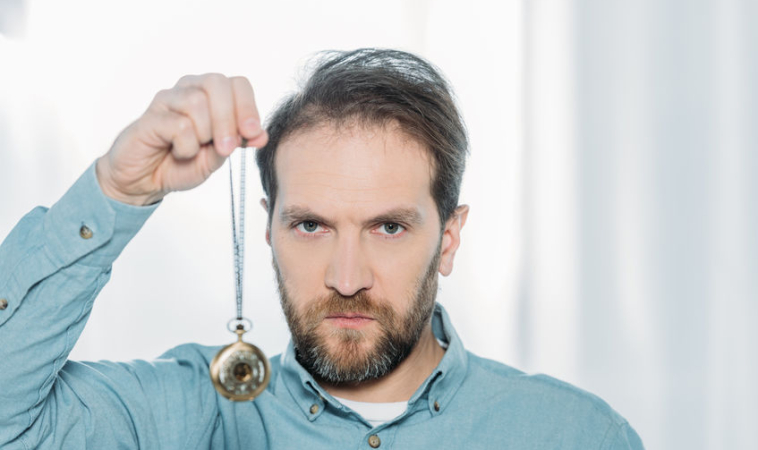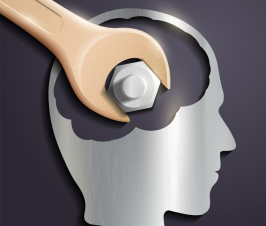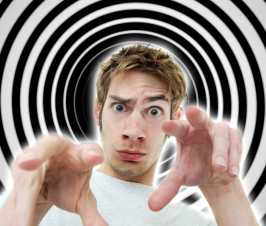Popular folklore and anecdotal evidence suggest that people in a hypnotic or suggestible state can experience sensory hallucinations, such as perceiving sounds and sights that are not actually there. Reliable scientific evidence of these experiences, however, has been notoriously challenging to obtain because of their subjective nature.
New research published in the journal Psychological Science provides compelling evidence that hypnotic suggestions can help highly susceptible people “see” imaginary objects, equipping them with the missing details needed to solve an otherwise challenging visual puzzle.
“Hypnosis holds intriguing effects on human behavior,” said Amir Raz, a researcher at McGill University and coauthor on the paper. “The careful, systematic study of hypnotic phenomena can answer important questions about mind-body interactions and advance novel therapies in medicine, psychology, and dentistry.”
For their research, Raz and his colleagues divided 32 participants into two groups: those who were found to be highly hypnotizable and those who were less suggestible. The participants viewed an array of disconnected lines moving around on a display screen. The lines, if lengthened and connected, would have formed various geometric shapes, such as diamonds or triangles.
Participants had to determine whether the rotation of the incomplete geometric figures was clockwise or counterclockwise. This task was inherently difficult because the disconnected lines lacked the visual cues necessary to easily assess the direction of rotation. The participants’ success rate was approximately 50-50, or no better than chance.
The participants were then given the hypnotic suggestion to imagine that something was blocking out part of each shape being observed. Afterward, they repeated the same task of determining the direction of rotation.
The results revealed that participants who were highly susceptible to hypnotic suggestion successfully “hallucinated” visual occluders on top of moving objects. This added imaginary element enabled the participants to better visualize the full geometric shapes and more accurately determine their direction of rotation. On average, their success rate improved to approximately 70%, a statistically significant change.
The participants in the less hypnotizable group, however, were no more likely to complete the observational task following hypnotic suggestion. “Although these results are consistent with our hypothesis, the data surprised us by revealing the decisive and robust nature of the effect,” said Raz.
Previous work on hypnosis has often highlighted its capacity to suppress or remove certain perceptual experiences. The new research shows compelling evidence that a hypnotic suggestion can also enhance or introduce perceptual experiences.
“Our findings support the idea that, at least in some people, suggestions can add perceptual information to sensory input,” said Raz. “This observation adds meaningful weight to theoretical, clinical, and applied aspects of the brain and psychological sciences.”
1. Mathieu Landry, Jason Da Silva Castanheira, Jérôme Sackur, Amir Raz. Difficult Turned Easy: Suggestion Renders a Challenging Visual Task Simple. Psychological Science, 2020; 32 (1): 39 DOI: 10.1177/0956797620954856

Razi Berry is the founder and publisher of the journal Naturopathic Doctor News & Review, which has been in print since 2005, and the premier consumer-faced website of naturopathic medicine, NaturalPath. She is the host of The Love is Medicine Project docuseries, The Natural Cancer Prevention Summit, The Heart Revolution-Heal, Empower and Follow Your Heart, and the popular 10-week Sugar Free Summer program. From a near death experience as a young girl that healed her failing heart, to later overcoming infertility and chronic fatigue syndrome and fibromyalgia through naturopathic medicine, Razi has lived the mind/body healing paradigm. Her projects uniquely capture the tradition and philosophy of naturopathy: The healing power of nature, the vital life force in every living thing and the undeniable role that science and mind/body medicine have in creating health and overcoming dis-ease. You can follow Razi on social media: Facebook at Razi Berry, Instagram at Razi.Berry and join the Love is Medicine group to explore the convergence of love and health. Look for more, and listen to more Love is Medicine podcast episodes here.

















